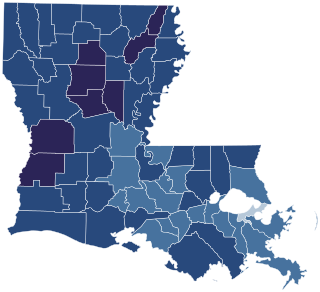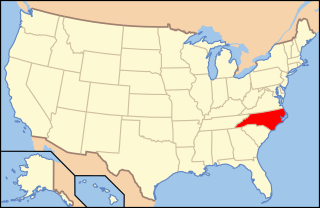The Federal Marriage Amendment (FMA), also referred to by proponents as the Marriage Protection Amendment, was a proposed amendment to the United States Constitution that would legally define marriage as a union of one man and one woman. The FMA would also prevent judicial extension of marriage rights to same-sex (gay) or other unmarried homosexual couples.

Prior to the Supreme Court's decision in Obergefell v. Hodges (2015), U.S. state constitutional amendments banning same-sex unions of several different types passed, banning legal recognition of same-sex unions in U.S. state constitutions, referred to by proponents as "defense of marriage amendments" or "marriage protection amendments." These state amendments are different from the proposed Federal Marriage Amendment, which would ban same-sex marriage in every U.S. state, and Section 2 of the Defense of Marriage Act, more commonly known as DOMA, which allowed the states not to recognize same-sex marriages from other states. The amendments define marriage as a union between one man and one woman and prevent civil unions or same-sex marriages from being legalized, though some of the amendments bar only the latter. The Obergefell decision in June 2015 invalidated these state constitutional amendments insofar as they prevented same-sex couples from marrying, even though the actual text of these amendments remain written into the state constitutions.

Arizona Proposition 107 was a proposed same-sex marriage ban, put before voters by ballot initiative in the 2006 general election. If passed, it would have prohibited the state of Arizona from recognizing same-sex marriages or civil unions. The state already had a statute defining marriage as the union of a man and a woman and prohibiting the recognition of same-sex marriages performed elsewhere.

This article summarizes the same-sex marriage laws of states in the United States. Via the case Obergefell v. Hodges on June 26, 2015, the Supreme Court of the United States legalized same-sex marriage in a decision that applies nationwide, with the exception of American Samoa and sovereign tribal nations.

South Dakota Amendment C of 2006 is an amendment to the South Dakota Constitution to make it unconstitutional for the state to recognize or perform same-sex marriages, or to recognize civil unions, domestic partnerships, or other quasi-marital relationships regardless of gender. The referendum was approved on 7 November 2006 by 52% of the state's voters.

The Amendment 774 of 2006, also known as Alabama Sanctity of Marriage Amendment, is an amendment to the Alabama Constitution that makes it unconstitutional for the state to recognize or perform same-sex marriages or civil unions. The legislature passed Alabama Act 2005-35, which placed this amendment on the election ballot. The referendum was approved by 81% of the voters.

Georgia Constitutional Amendment 1 of 2004, is an amendment to the Georgia Constitution that previously made it unconstitutional for the state to recognize or perform same-sex marriages or civil unions. The referendum was approved by 76% of the voters.

Kentucky Constitutional Amendment 1 of 2004, is an amendment to the Kentucky Constitution that made it unconstitutional for the state to recognize or perform same-sex marriages or civil unions. The referendum was approved by 75% of the voters.

Louisiana Constitutional Amendment 1 of 2004, is an amendment to the Louisiana Constitution that makes it unconstitutional for the state to recognize or perform same-sex marriages or civil unions. The referendum was approved by 78% of the voters.

Michigan Proposal 04-2 of 2004, is an amendment to the Michigan Constitution that made it unconstitutional for the state to recognize or perform same-sex marriages or civil unions. The referendum was approved by 59% of the voters. The amendment faced multiple legal challenges and was finally overturned in Obergefell v. Hodges by the U.S. Supreme Court.

Section 15.11 is a provision in the Ohio Constitution that makes it unconstitutional for the state to recognize or perform same-sex marriages or civil unions. Approved as a constitutional amendment in 2004 under the name of "Issue One", it received support from 61.7% of voters.

Oklahoma Question 711 of 2004, was an amendment to the Oklahoma Constitution that defined marriage as the union of a man and a woman, thus rendering recognition or performance of same-sex marriages or civil unions null within the state prior to its being ruled unconstitutional. The referendum was approved by 76 percent of the voters.

2006 Virginia Question 1, the Marshall-Newman Amendment is an amendment to the Constitution of Virginia that defines marriage as solely between one man and one woman and bans recognition of any legal status "approximat[ing] the design, qualities, significance, or effects of marriage". The amendment was ratified by 57% of the voters on November 7, 2006. It became part of the state Constitution as Section 15-A of Article 1. In 2014, the amendment was ruled unconstitutional in Bostic v. Schaefer.
Same-sex marriage in Nevada has been legally recognized since October 9, 2014, when a federal district court judge issued an injunction against Nevada's enforcement of its same-sex marriage ban, acting on order from the Ninth Circuit Court of Appeals. A unanimous three-judge panel of the Ninth Circuit had ruled two days earlier that the state's ban on same-sex marriage was unconstitutional. Same-sex marriage was previously banned by an amendment to the Constitution of Nevada adopted in 2002. The statutory and constitutional bans were repealed in 2017 and 2020, respectively.
Same-sex marriage in North Carolina has been legally recognized since October 10, 2014, when a U.S. District Court judge ruled in General Synod of the United Church of Christ v. Cooper that the state's denial of marriage rights to same-sex couples was unconstitutional. Governor Pat McCrory and Attorney General Roy Cooper had acknowledged that a recent ruling in the Fourth Circuit Court of Appeals and the U.S. Supreme Court's decision not to hear an appeal in that case established the unconstitutionality of North Carolina's ban on same-sex marriage. State legislators sought without success to intervene in lawsuits to defend the state's ban on same-sex marriage.
Citizens for Equal Protection v. Bruning, 455 F.3d 859, was a federal lawsuit filed in the United States District Court for the District of Nebraska and decided on appeal by the United States Court of Appeals for the Eighth Circuit. It challenged the federal constitutionality of Nebraska Initiative Measure 416, a 2000 ballot initiative that amended the Nebraska Constitution to prohibit the recognition of same-sex marriages, civil unions, and other same-sex relationships.

Lesbian, gay, bisexual, and transgender (LGBT) persons in the U.S. state of North Carolina may face legal challenges not experienced by non-LGBT residents, or LGBT residents of other states with more liberal laws.

North Carolina Amendment 1 was a legislatively referred constitutional amendment in North Carolina that amended the Constitution of North Carolina to prohibit the state from recognizing or performing same-sex marriages or civil unions. The amendment did not prohibit domestic partnership agreements, but defined male–female marriage as "the only domestic legal union" considered valid or recognized in the state. On May 8, 2012, North Carolina voters approved the amendment, 61% to 39%, with a voter turnout of 35%. On May 23, 2012, the amendment took effect.
The U.S. state of Texas issues marriage licenses to same-sex couples and recognizes those marriages when performed out-of-state. On June 26, 2015, the United States legalized same-sex marriage nationwide due to the U.S. Supreme Court's decision in Obergefell v. Hodges. Prior to the U.S. Supreme Court's ruling Article 1, Section 32, of the Texas Constitution provided that "Marriage in this state shall consist only of the union of one man and one woman," and "This state or a political subdivision of this state may not create or recognize any legal status identical or similar to marriage." This amendment and all related statutes have been ruled unconstitutional and unenforceable. Some cities and counties in the state recognize both same-sex and opposite-sex domestic partnerships.

The 2006 Virginia State Elections took place on Election Day, November 7, 2006, the same day as the U.S. House and the U.S. Senate elections in the state. The only statewide elections on the ballot were three constitutional referendums to amend the Virginia State Constitution. Because Virginia state elections are held on off-years, no statewide officers or state legislative elections were held. All referendums were referred to the voters by the Virginia General Assembly.















